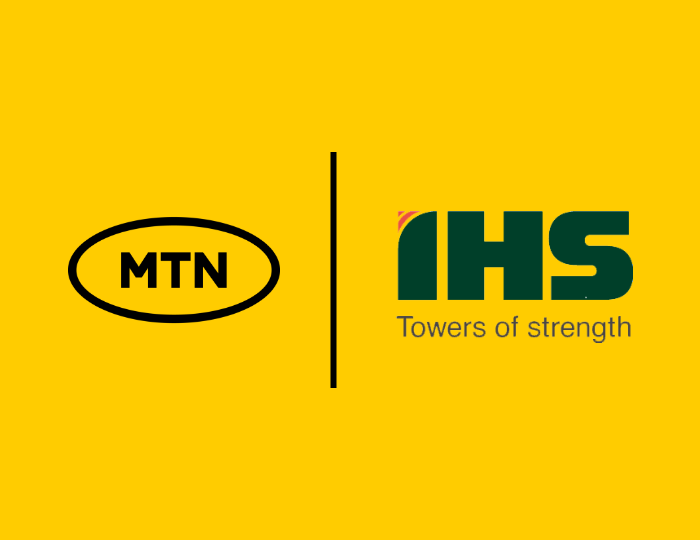A Towering Dependency
IHS Towers, the world’s fifth-largest multinational tower company, has revealed that MTN Nigeria and Airtel Nigeria accounted for a staggering 57% of its revenue in 2024. This heavy reliance on a handful of key customers underscores the company’s vulnerability to economic and regulatory shifts in its largest market, Nigeria, which contributed 58.3% of its total earnings. Despite its dominance in the telecom infrastructure industry, IHS Towers faces significant challenges, including rising operating costs, currency devaluation, and economic instability, which could impact its growth and profitability.
Revenue Decline: A Tough Year for IHS Towers
In 2024, IHS Towers reported a decline in revenue, dropping to 1.7billion∗∗from∗∗2.1 billion in 2023. The company’s financial performance is heavily tied to just three mobile network operators: MTN Nigeria, Airtel Africa, and MTN South Africa, which together account for 98.5% of its earnings. This concentration of revenue sources makes IHS Towers highly susceptible to any downturn affecting these key customers, whether due to economic instability, currency devaluation, or regulatory changes.
Nigeria’s Economic Challenges: A Double-Edged Sword
Nigeria, IHS Towers’ largest market, has been grappling with severe economic challenges, including a sharp devaluation of the naira since 2023. This has led to increased inflation and financial uncertainty, posing significant risks to businesses operating in the country. For IHS Towers, which derives 58.3% of its revenue from Nigeria, further economic deterioration could hinder its growth and profitability.
The company has acknowledged these risks, particularly the potential impact on its key customers’ ability to meet lease obligations and sustain demand for tower infrastructure. As mobile network operators face financial pressures, they may cut back on infrastructure investments, reducing demand for IHS Towers’ services.
Rising Operating Costs: The Energy Dilemma
One of the biggest challenges for IHS Towers is the rising cost of operations, driven primarily by power generation expenses, which accounted for 39.2% of its cost of sales in 2024, up from 33.5% in 2023. The company spent 348milliononpowergeneration∗∗in2024,comparedto∗∗396 million in the previous year.
To mitigate these costs, IHS Towers has invested in hybrid energy solutions, combining diesel generators with solar and battery systems. As of December 2024, 41% of its sites ran on hybrid power, 33% used grid electricity with backup generators, and 18% relied solely on generators. The remaining 8% operated on direct grid connections or alternative energy sources like solar power.
“We, or third-party contractors we have engaged for certain sites, are responsible for monitoring the diesel levels of our generator tanks and scheduling diesel deliveries,” IHS stated in its financial report. “Given the importance of diesel for the operation of our sites in many of our African markets, we may purchase diesel in large quantities, which is then stored at our facilities.”

Network Expansion: High Costs, High Stakes
Expanding its network remains a significant financial burden for IHS Towers. As of December 2024, the cost of building a new tower ranged between 50,000and100,000 in Africa, while in Latin America, it ranged from 40,000to80,000. These high costs pose a challenge for further expansion, especially in an economic environment where access to financing and foreign exchange remains restricted.
Despite these challenges, IHS Towers continues to dominate the telecom infrastructure industry in Africa, managing 39,229 towers across six African and two Latin American countries. The company is the largest independent tower operator in six of its eight markets and the only independent scale operator in four.
Optimism Amid Challenges: CEO’s Bullish Outlook
Despite the economic headwinds, IHS Towers’ CEO, Sam Darwish, remains optimistic about growth opportunities, particularly in Nigeria. The recent approval of a tariff increase by the Nigerian Communications Commission (NCC), now being implemented by major operators like MTN Nigeria and Airtel Nigeria, is expected to boost investments in telecom infrastructure.
“We are extremely bullish on Nigeria at the moment,” Darwish said. “We are confident that the tariff adjustments will positively impact the industry in 2025 as telcos expand their networks to enhance service delivery.”
Read Also: “Airtel Africa Launches AI-Powered Spam Alert Service for 150 Million Subscribers”
The Road Ahead: Weathering the Storms
While IHS Towers continues to maintain its dominance in the telecom infrastructure industry, its heavy reliance on Nigeria and a narrow customer base presents significant risks. The company will need to diversify its revenue streams, reduce operating costs, and navigate economic uncertainties to sustain its growth and profitability.
The implementation of hybrid energy solutions and the potential boost from tariff increases offer some hope, but IHS Towers will need more than just towering ambitions to weather the storms ahead. As the company looks to the future, its ability to adapt to changing market dynamics and economic conditions will be critical to its success.
A Balancing Act
IHS Towers’ 2024 performance highlights both its strengths and vulnerabilities. While the company remains a leader in the telecom infrastructure industry, its heavy reliance on a few key customers and markets underscores the need for strategic diversification and cost management. As economic challenges persist, IHS Towers will need to balance its ambitious growth plans with prudent financial management to ensure long-term sustainability.
For now, the company’s focus remains on leveraging its market leadership and innovative solutions to navigate the complexities of the African and Latin American telecom landscapes. The road ahead may be challenging, but with the right strategies, IHS Towers can continue to build on its towering legacy.
















Got a Questions?
Find us on Socials or Contact us and we’ll get back to you as soon as possible.